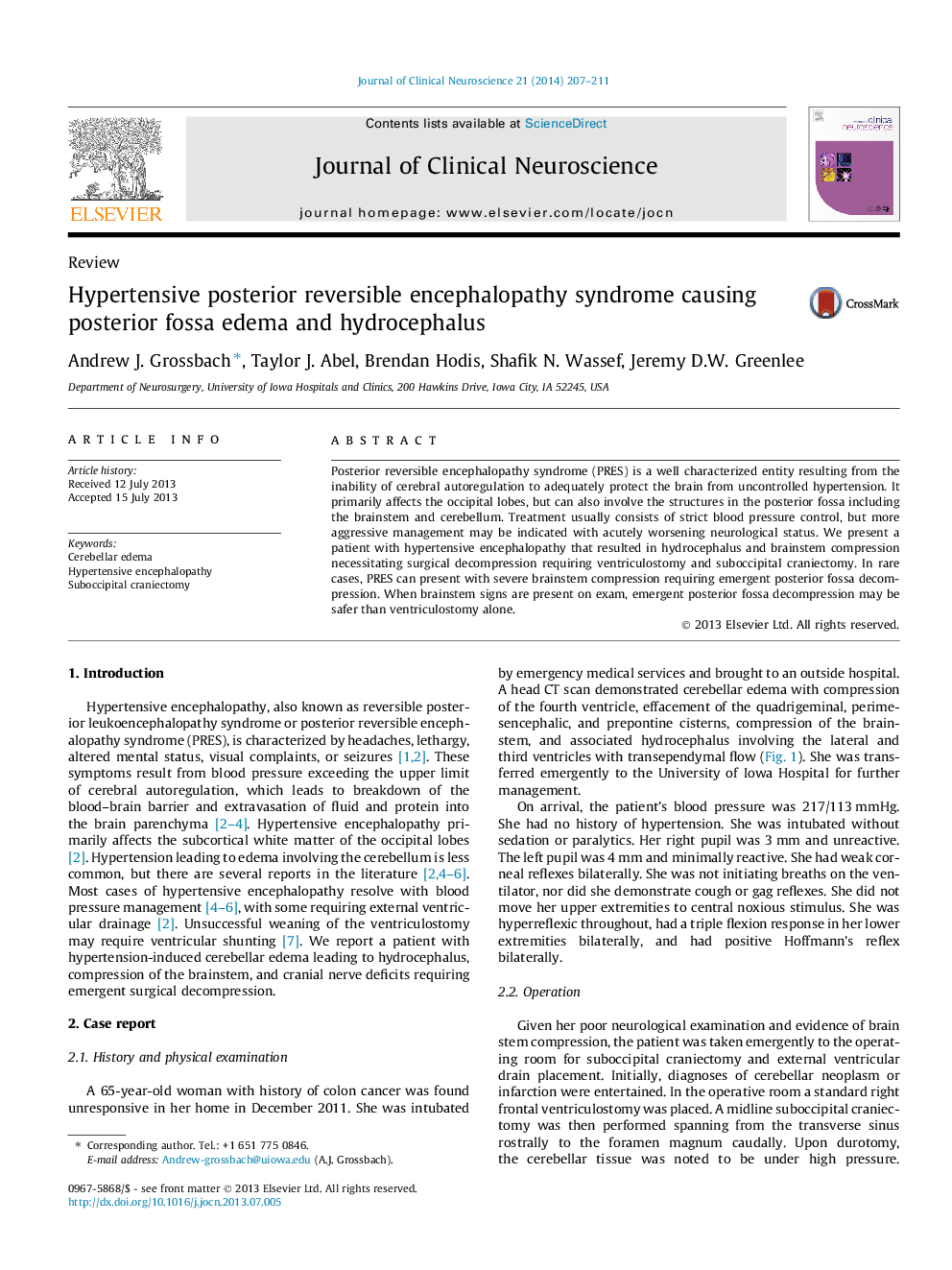| Article ID | Journal | Published Year | Pages | File Type |
|---|---|---|---|---|
| 3059222 | Journal of Clinical Neuroscience | 2014 | 5 Pages |
Posterior reversible encephalopathy syndrome (PRES) is a well characterized entity resulting from the inability of cerebral autoregulation to adequately protect the brain from uncontrolled hypertension. It primarily affects the occipital lobes, but can also involve the structures in the posterior fossa including the brainstem and cerebellum. Treatment usually consists of strict blood pressure control, but more aggressive management may be indicated with acutely worsening neurological status. We present a patient with hypertensive encephalopathy that resulted in hydrocephalus and brainstem compression necessitating surgical decompression requiring ventriculostomy and suboccipital craniectomy. In rare cases, PRES can present with severe brainstem compression requiring emergent posterior fossa decompression. When brainstem signs are present on exam, emergent posterior fossa decompression may be safer than ventriculostomy alone.
